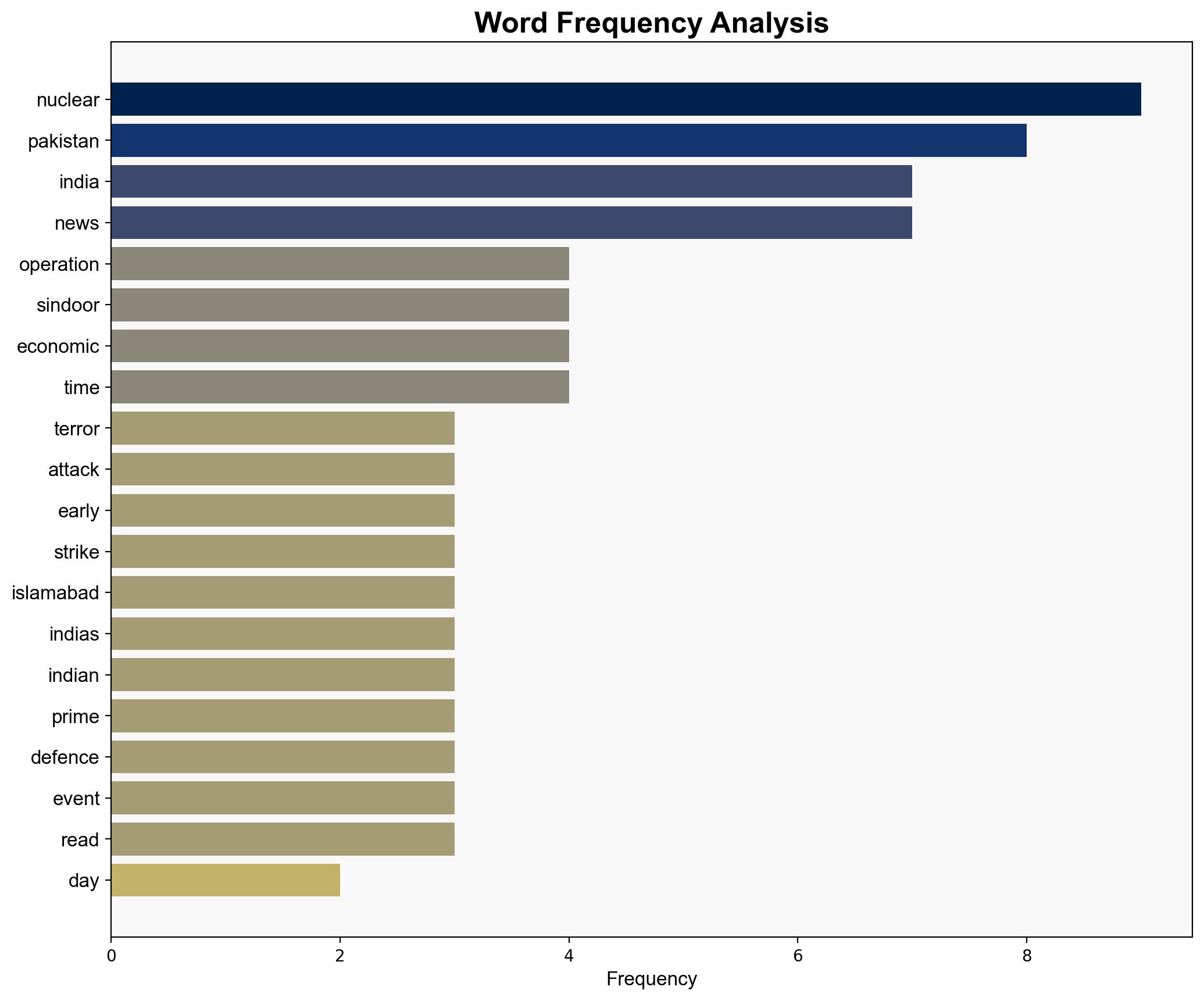Shehbaz Sharif rejects nuclear threats as India tensions rise counters officials warning of ‘full Spectrum’ response – The Times of India
Published on: 2025-07-13
Intelligence Report: Shehbaz Sharif Rejects Nuclear Threats Amid Rising India Tensions
1. BLUF (Bottom Line Up Front)
The recent statements by Shehbaz Sharif, rejecting nuclear threats amidst escalating tensions with India, indicate a complex geopolitical landscape in South Asia. Despite Pakistan’s public stance of restraint, the potential for nuclear escalation remains a significant concern. The situation necessitates careful monitoring and strategic engagement to prevent further deterioration.
2. Detailed Analysis
The following structured analytic techniques have been applied to ensure methodological consistency:
Causal Layered Analysis (CLA)
– **Surface Events**: The standoff follows a deadly terror attack in Pahalgam, leading to India’s Operation Sindoor.
– **Systemic Structures**: Military operations and retaliations are influenced by longstanding regional conflicts and defense postures.
– **Worldviews**: Pakistan’s nuclear deterrence is perceived as a necessary defense mechanism, while India views its military actions as counter-terrorism efforts.
– **Myths**: The belief in nuclear deterrence as a stabilizing force is challenged by the risk of miscalculation and escalation.
Cross-Impact Simulation
– The interplay between India and Pakistan’s military actions could trigger broader regional instability.
– Economic dependencies, particularly Pakistan’s reliance on Chinese arms, may influence defense strategies and international alignments.
Scenario Generation
– **Best Case**: Diplomatic engagement leads to de-escalation and renewed dialogue between India and Pakistan.
– **Worst Case**: Miscalculations result in military escalation, potentially involving nuclear capabilities.
– **Most Likely**: Continued low-intensity conflicts with periodic diplomatic interventions.
3. Implications and Strategic Risks
The current dynamics pose risks of military escalation and nuclear confrontation. The reliance on nuclear deterrence as a strategic tool increases the risk of miscalculation. Additionally, the involvement of external actors like China could complicate regional power balances and exacerbate tensions.
4. Recommendations and Outlook
- Encourage diplomatic channels to facilitate dialogue between India and Pakistan to reduce tensions.
- Enhance regional cooperation on counter-terrorism to address root causes of conflict.
- Monitor arms trade and military build-ups to assess potential shifts in regional power dynamics.
- Scenario-based projections suggest prioritizing diplomatic engagement to avoid worst-case outcomes.
5. Key Individuals and Entities
– Shehbaz Sharif
– Muhammad Khalid Jamali
– Narendra Modi
– Anil Chauhan
6. Thematic Tags
national security threats, nuclear deterrence, counter-terrorism, regional stability




